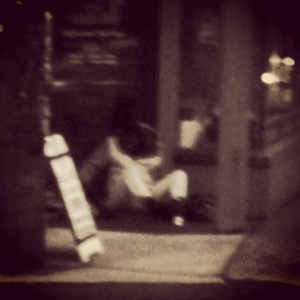Portland is a wonderfully eclectic place to live in. There is something for everyone, regardless of lifestyle, religious affiliation (or lack thereof), race, ethnicity, or country of origin. It’s the home of tree huggers and digital industrialists alike. It’s also Hollywood’s newest, Hipster cousin: home of television series like Portlandia and Grimm, as well as a key location for filming movies such as The Hunted, Untraceable, and Extraordinary Measures. Portland is an amazing place to live.
That being said, Portland also has it’s darker aspects. On April 23, 2013, Dana Tims of The Oregonian reported:
Homelessness in Multnomah County, particularly among veterans, families, women, and adults with disabilities, is dire and likely getting worse. . .
In terms of comparisons, Multnomah County appears to have higher numbers of homeless families than similar areas elsewhere, . . . The percentage of homelessness here is higher than King County, Wash., San Francisco and Hennepin County, Minn. — an area often held up as a model for combating homelessness. . .
The 2,666 homeless families counted in Multnomah County in 2011, she said, dwarfed the 635 homeless families counted in San Francisco that same year. ~ Multnomah County homelessness problem dire and likely to get worse, experts say

A local homeless man gathering up his sleeping gear after spending the night under shelter in front of a store. (c) 10/02/2013, lem
People huddle in blankets and sleeping bags under the covered areas of storefronts, churches, and public parks after businesses close and passersby, who are likely to shun, complain, or harass the homeless retire to their homes. The covered areas beneath Portland’s numerous bridges and overpasses, along with the biking and hiking areas containing trees and foliage have makeshift communities of all ages, from all backgrounds which have continued to grow in number.
Private non-profit community service agencies such as Human Solutions have started operating Warming Centers during the worst of the winter weather. According to their website:
Family homelessness is a genuine concern in our community. The January 26, 2011 One Night Shelter Count identified 5,220 homeless people in Multnomah County. Of those 5,220 homeless people, 2,784 were people in families, including 1,602 children under the age of 18. People in homeless families, including infants and children, made up over half (53%) of all the homeless people in the count.
Some shelter programs do not have the capacity to keep families together, separating genders above certain ages, meaning husbands and fathers are not able to share the same quarters as their families and adolescent sons have to fend for themselves in overwhelming and frightening circumstances. Warming Centers for families open during the winter months, usually during the worst weather months, November through March or April. Several shelter programs are only available to women and their children who are fleeing domestic violence, which is needed, but may cause desperate mothers and fathers to misrepresent their situations in order to provide safe shelter for their children, because there aren’t enough resources to serve the increasing number of homeless families.
One family shelter that I am aware of, which keeps families together while providing structured services, like life-skills training, to help families transition from homelessness and instability into obtaining their own housing and sustainable self-sufficiency, is My Father’s House, located in Gresham, OR.
My oldest two children and I were residents in an earlier incarnation of the program, ten years ago, during the Summer of 2003. Since then, the program has grown from housing five families at a time in five bedrooms of a conjoined duplex, which also housed the administrative office and class/meeting room, to owning a 20,000 square foot facility that can house up to 30 families. They are currently in the process of building transitional apartment housing for 12 single-mother families who have graduated their main shelter program.
My Father’s House is not an immediate entry emergency shelter; meaning, a homeless family cannot simply show up on the doorstep on a first come, first serve basis and have a place to sleep that night. There is an intake process which starts with a phone call to, (503) 492-3046.
Homelessness and poverty in Portland, in America, is, in my personal opinion, reaching epidemic proportions. The causes, effects, and co-related factors are complex, multi-layered, and require that every individual within the community set aside assumptions, prejudices, and judgment. It also requires that every one of us take personal ownership of creating solutions and creating change where we live and not relying on elected officials, community service organizations, and churches to help “those” people. You would be surprised that many of “those” people are co-workers, classmates of your children, and the fast food worker who is cleaning up the debris left on the tables and floors because “that’s their job.”
The stigma of being poor and homeless and the criticism of people needing to access government funded services pushes people into hiding their need from others. Perhaps, if we all figured out what we could do, where we are at with the resources we do have, there would be less reliance on government. Even those of us who may be on the verge of homelessness ourselves, still have something to offer or share, whether it’s time, or just reaching out to offer a hug, a smile, or a listening ear.
When everyone is sinking in quicksand and it’s every man for himself – no one gets out. Let’s reach out to our fellow human beings and citizens and help each other to get up and get out of poverty and homelessness.
Related articles
- Hungary: Criminalizing Hungary’s Homeless (ionglobaltrends.com)
- YouthLink Helping Homeless Youth Find Direction At Life’s Crossroads (minnesota.cbslocal.com)
- In talks on panhandling limits, don’t forget what’s important (bangordailynews.com)
- Shattering myths about homelessness (utsandiego.com)
- The cost of homelessness in Washington County: Study looks at emergency services price tag (oregonlive.com)
- Councilman: City lacks compassion (toledoblade.com)
- Atlanta Logs Dramatic Turnaround in Homelessness (abcnews.go.com)
